FTC Challenges Court Ruling On Microsoft-Activision Merger
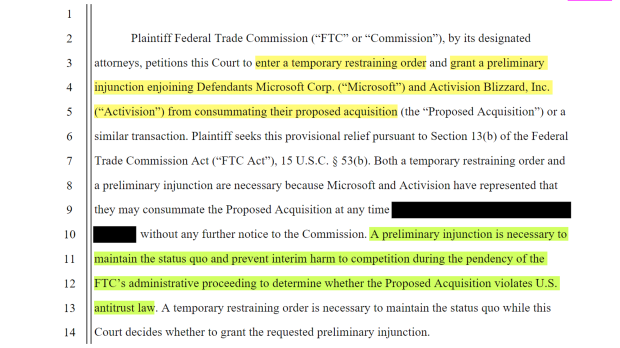
Table of Contents
The FTC's Arguments Against the Merger
The FTC's antitrust lawsuit centers on concerns that the Microsoft-Activision Blizzard merger would create monopolistic practices and substantially lessen competition within the gaming market. Their core arguments revolve around several key points:
-
Market Dominance: The FTC argues that the merger would grant Microsoft undue market power, particularly in the console and cloud gaming markets. Combining Microsoft's Xbox ecosystem with Activision Blizzard's extensive portfolio of games, including the immensely popular Call of Duty franchise, would create an unassailable market leader.
-
Call of Duty Exclusivity: A central concern is the potential for Microsoft to make key Activision Blizzard titles, especially Call of Duty, exclusive to its Xbox ecosystem. This would severely disadvantage competitors like Sony PlayStation and Nintendo Switch, potentially driving players to the Xbox platform and harming competition.
-
Stifling Innovation: The FTC alleges that the merger could stifle innovation by reducing the incentive for Microsoft to compete fairly. A lack of competition can lead to higher prices, reduced quality, and a lack of choice for consumers.
-
Data Consolidation: The FTC also highlighted concerns about the potential for Microsoft to leverage the vast amounts of user data collected by Activision Blizzard to gain an unfair competitive advantage in the market. This data could be used to personalize gaming experiences, target advertising, and further consolidate Microsoft's market dominance.
The Court's Initial Ruling and its Rationale
A US District Court judge initially sided with Microsoft, dismissing the FTC's attempt to block the merger. The court's rationale rested on several key factors:
-
Insufficient Evidence: The court found insufficient evidence to demonstrate that the merger would substantially lessen competition. The judge appeared unconvinced by the FTC’s arguments regarding Call of Duty exclusivity, citing the availability of alternative gaming platforms and Microsoft's proposed licensing agreements.
-
Competitive Market Dynamics: The court's decision emphasized the highly competitive nature of the gaming market, highlighting the presence of numerous other significant players and the ongoing innovation within the industry.
-
Remedies Offered by Microsoft: The ruling may have taken into account the remedies proposed by Microsoft to mitigate antitrust concerns. These remedies included multi-year licensing agreements to ensure Call of Duty remains available on competing platforms.
-
Procedural Issues: Some legal experts suggested that the FTC's case may have suffered from procedural weaknesses, affecting the court's ultimate decision.
Microsoft's Response to the FTC's Challenge
Microsoft has indicated it will vigorously defend its acquisition against the FTC's appeal. Its defense strategy likely involves:
-
Refuting FTC Claims: Microsoft will likely present arguments directly refuting the FTC's claims of monopolistic practices and harm to competition. They may dispute the FTC's market analysis and the weight placed on potential Call of Duty exclusivity.
-
Highlighting Merger Benefits: Microsoft will emphasize potential benefits stemming from the merger, such as increased investment in game development, innovation, and potentially lower prices for consumers due to economies of scale.
-
Emphasizing Fair Competition: The company will likely reiterate its commitments to ensuring fair competition, including ongoing licensing agreements for key titles and maintaining cross-platform compatibility where possible.
-
Strategic Public Relations: A significant aspect of Microsoft's response will involve strategic public relations to shape public opinion and maintain a positive image during this protracted legal battle.
The Broader Implications for the Gaming Industry
The FTC's challenge and the subsequent appeal hold significant implications extending beyond the Microsoft-Activision merger itself:
-
Precedent Setting: The outcome of this legal battle will establish a precedent for future mergers and acquisitions in the gaming industry, influencing how regulatory bodies approach similar deals.
-
Regulatory Scrutiny: This case could increase the level of regulatory scrutiny applied to mergers and acquisitions in the tech and entertainment sectors, potentially slowing down future consolidation.
-
Balance of Innovation and Competition: The case highlights the ongoing tension between fostering innovation within the gaming industry and ensuring fair competition. This balancing act will continue to shape regulatory decisions and industry practices.
-
Investment and Development: The uncertainty surrounding the merger could affect investment strategies and the development of new games across various platforms, creating uncertainty for game developers and publishers.
Conclusion
The FTC's challenge to the court ruling on the Microsoft-Activision merger is a landmark legal battle with far-reaching consequences for the gaming industry. The outcome will determine not only the fate of this specific acquisition but will also profoundly influence the regulatory landscape for future mergers and acquisitions in the sector. This ongoing Microsoft-Activision merger case underscores the crucial need for continued scrutiny of industry consolidation to safeguard competition and, ultimately, benefit gamers. Stay informed about future developments in this case to understand its impact on the future of gaming and the broader tech industry.

Featured Posts
-
 High Stock Market Valuations A Bof A Analysis For Investors
Apr 24, 2025
High Stock Market Valuations A Bof A Analysis For Investors
Apr 24, 2025 -
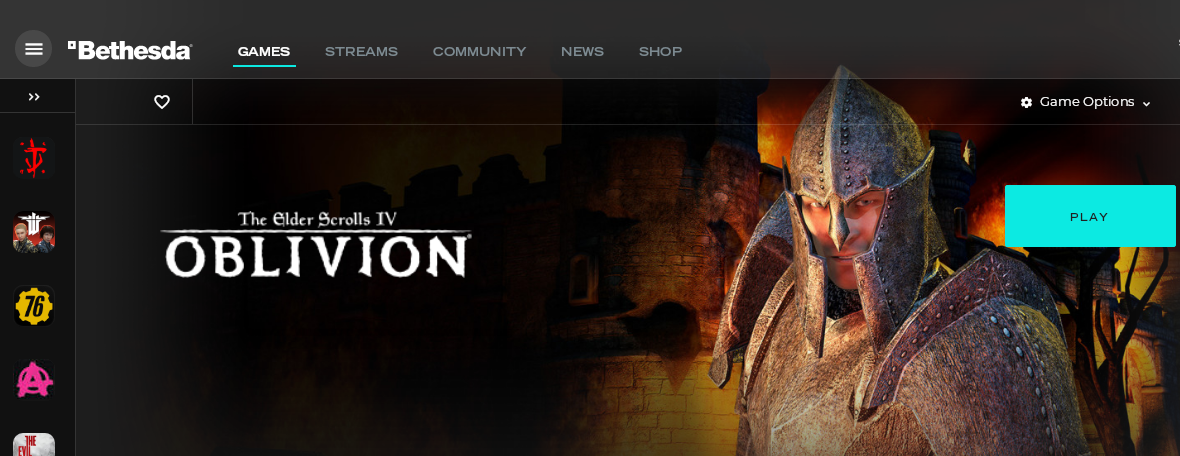 Bethesda Confirms Oblivion Remastered Release
Apr 24, 2025
Bethesda Confirms Oblivion Remastered Release
Apr 24, 2025 -
 Tornado Season And Trumps Budget A Dangerous Combination
Apr 24, 2025
Tornado Season And Trumps Budget A Dangerous Combination
Apr 24, 2025 -
 Kci Johna Travolte Nevjerojatna Transformacija
Apr 24, 2025
Kci Johna Travolte Nevjerojatna Transformacija
Apr 24, 2025 -
 Chinas Impact On Bmw And Porsche Sales Whats Happening
Apr 24, 2025
Chinas Impact On Bmw And Porsche Sales Whats Happening
Apr 24, 2025
Latest Posts
-
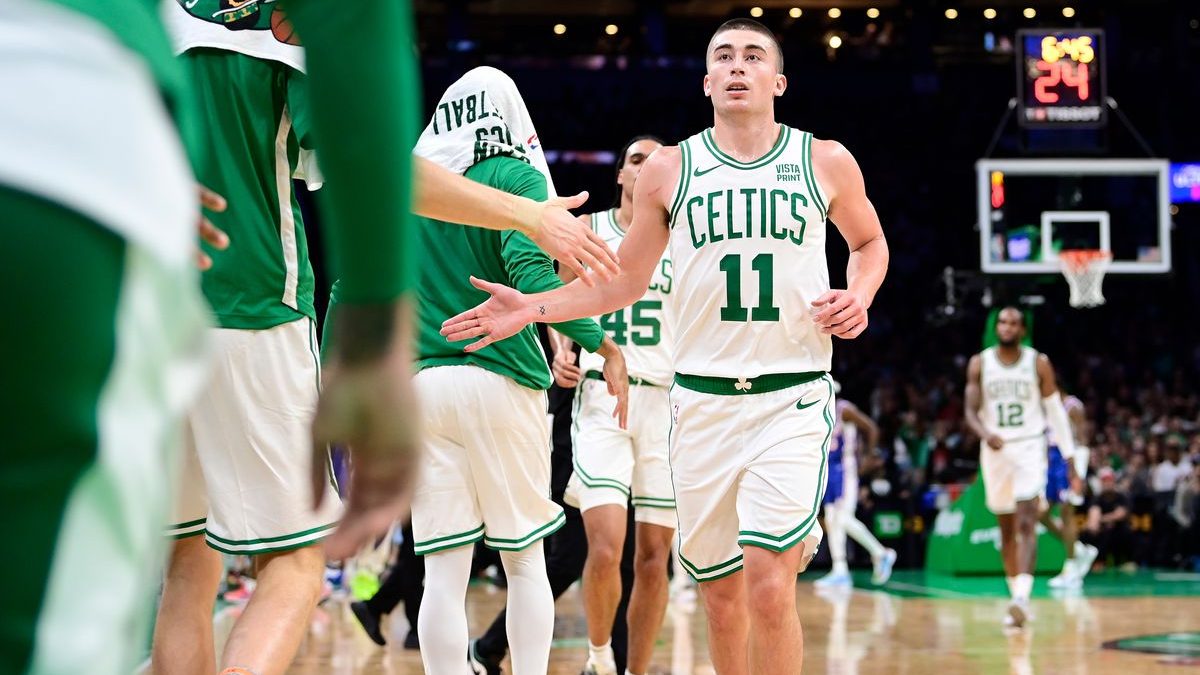 The Role Of Payton Pritchards Childhood In His Latest Career Feat
May 12, 2025
The Role Of Payton Pritchards Childhood In His Latest Career Feat
May 12, 2025 -
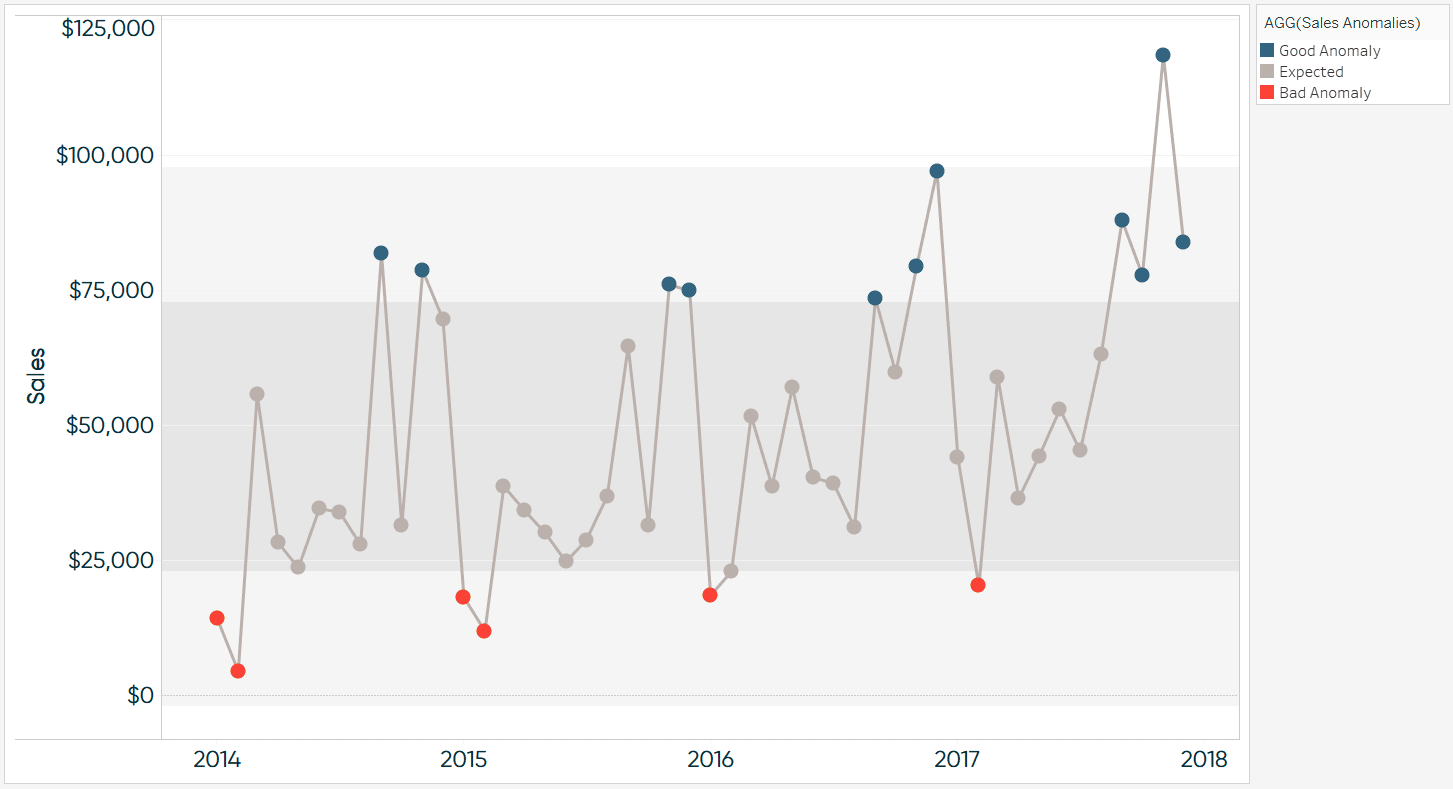 Celtics Witness Double 40 Point Scoring A Statistical Anomaly
May 12, 2025
Celtics Witness Double 40 Point Scoring A Statistical Anomaly
May 12, 2025 -
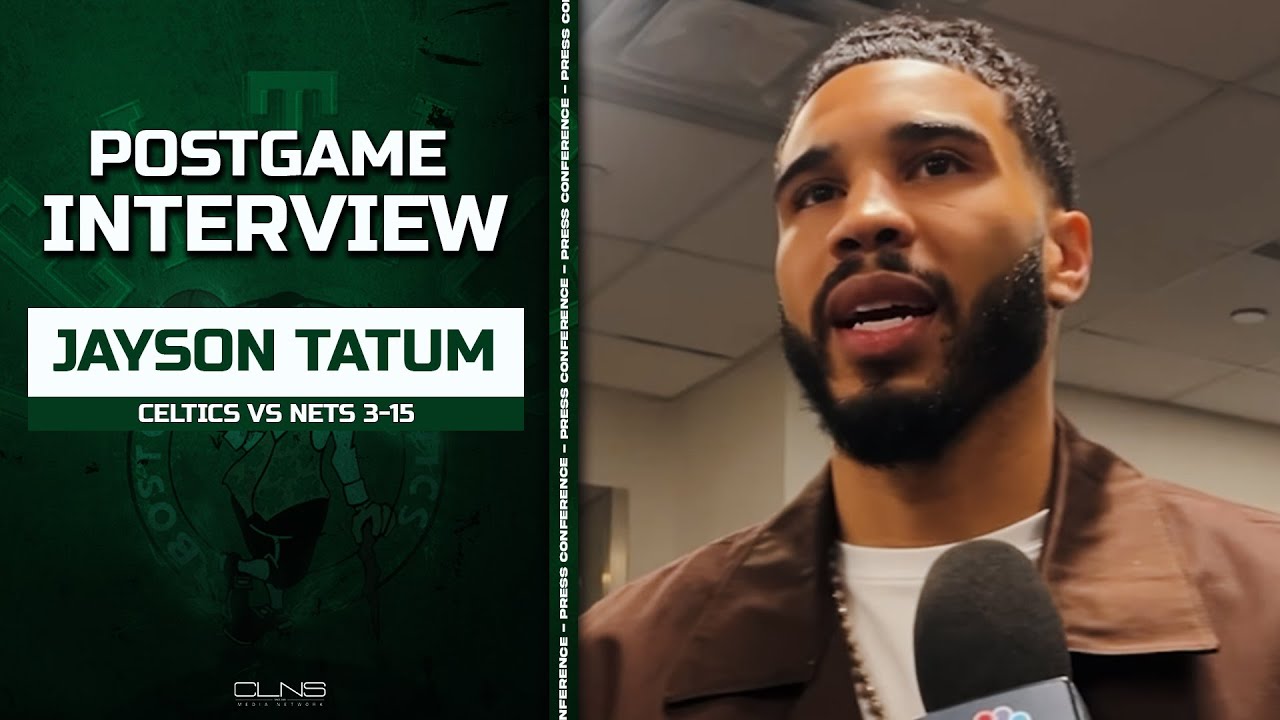 Payton Pritchards Career Achievement The Impact Of His Childhood
May 12, 2025
Payton Pritchards Career Achievement The Impact Of His Childhood
May 12, 2025 -
 Double 40 Point Game Unlikely Celtics Performance
May 12, 2025
Double 40 Point Game Unlikely Celtics Performance
May 12, 2025 -
 Understanding Payton Pritchards Nba Success A Look At His Development
May 12, 2025
Understanding Payton Pritchards Nba Success A Look At His Development
May 12, 2025
